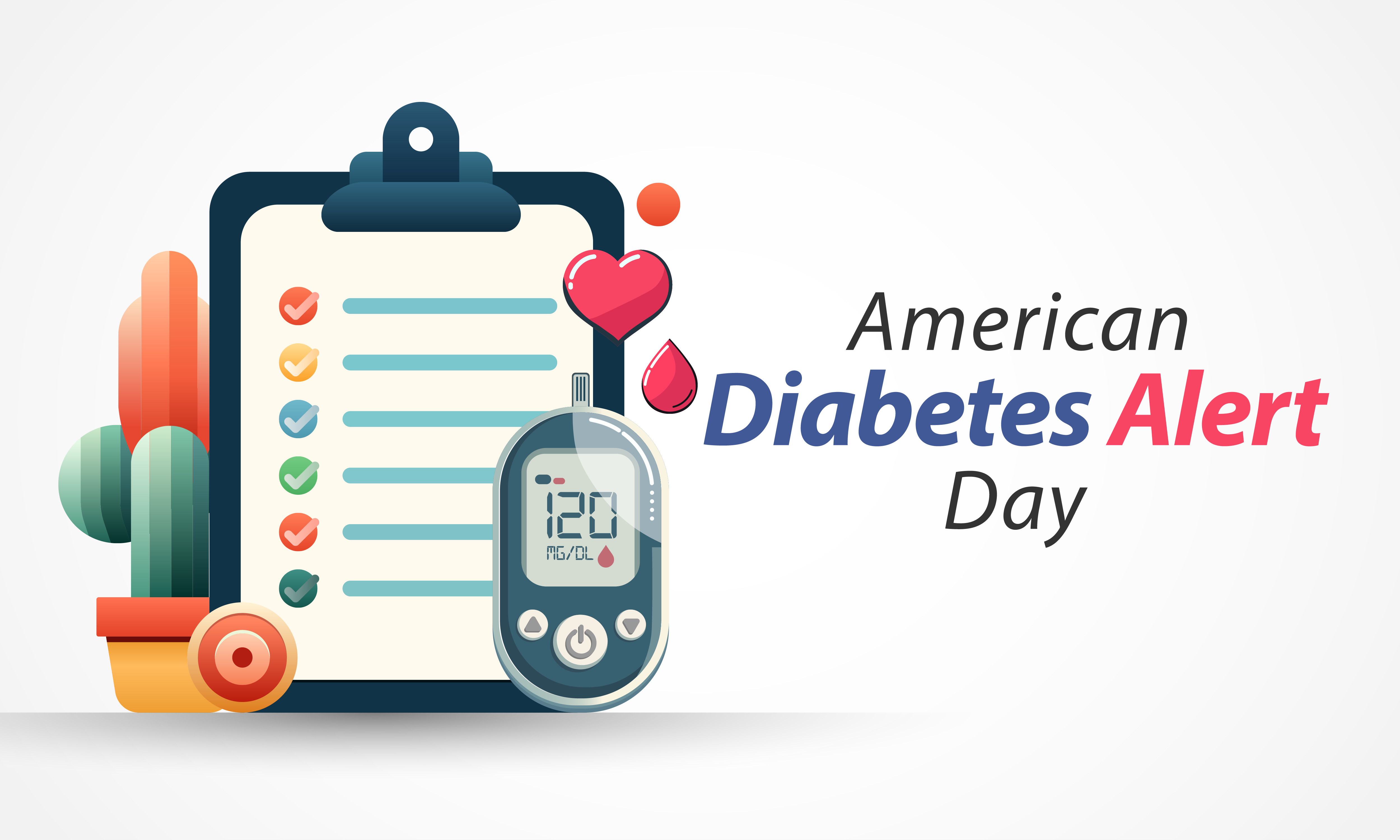- Date Published:
- Category: Blogs, Health Awareness, Kidney & Pancreas
Diabetes: Common Misconceptions

Each year in March we turn our attention to the important work of the annual Diabetes Alert Day. A one-day “wake up call” for Americans to take a quick Type 2 diabetes test to see if they are at risk for developing type 2 diabetes.
This year we are tackling several misconceptions about diabetes that can prevent people from truly understanding this condition - especially facts about prevention, treatment and lifestyle changes.
Here are some of the biggest mistakes people make when it comes to understanding diabetes:
"Diabetes is not that serious"
Mistake: Many people don't realize how serious diabetes can be. If not properly managed, it can lead to complications like heart disease, kidney failure, blindness, nerve damage, and even amputations.
Truth: Diabetes is a chronic condition that requires ongoing management. Both type 1 and type 2 diabetes can have significant long-term health impacts if left untreated or poorly managed.
"Only overweight people get type 2 diabetes"
Mistake: While being overweight or obese significantly increases the risk of developing type 2 diabetes, it's not the only factor. Genetics, age, and other factors also play a role.
Truth: People of any weight, including those with a healthy weight, can develop type 2 diabetes. Family history, ethnicity, and age are other risk factors.
"People with diabetes can't eat sugar"
Mistake: Many believe that people with diabetes must avoid sugar completely, but that's not true. It's about managing sugar intake, not eliminating it entirely.
Truth: People with diabetes can eat foods containing sugar, but portion control and balancing with other foods like fiber, protein, and healthy fats is key. They also need to monitor how different foods affect their blood sugar levels.
"Diabetes only affects blood sugar"
Mistake: Some people think diabetes only involves blood sugar control and that managing glucose levels is the only concern.
Truth: Diabetes affects many organs and systems. For example, high blood sugar can damage blood vessels, leading to complications like cardiovascular disease, kidney disease, and nerve damage.
"Type 1 diabetes is only for kids"
Mistake: There is a common misconception that type 1 diabetes is only diagnosed in children, which is why some adults may not recognize symptoms in themselves.
Truth: Type 1 diabetes can be diagnosed at any age. Though it is more common in children, it can develop in adults as well.
"If you're diagnosed with diabetes, you should immediately start insulin"
Mistake: Many people assume that an insulin shot is the first step after being diagnosed with diabetes.
Truth: For type 2 diabetes, insulin may not be necessary at first. Lifestyle changes like cleaning up your diet and adding or increasing exercise, along with oral medications, can often manage blood sugar levels. Insulin may be introduced later if necessary.
"Diabetes can be cured with the right diet or treatment"
Mistake: Some believe that there's a magic diet or pill that can "cure" diabetes.
Truth: Currently, there is no cure for diabetes. However, it can be effectively managed. In some cases, type 2 diabetes may go into remission with significant weight loss and lifestyle changes, but the risk of it returning remains.
"Diabetes is a result of eating too much sugar"
Mistake: While excessive sugar intake can contribute to weight gain and increase the risk of type 2 diabetes, it is not the sole cause.
Truth: Type 2 diabetes is primarily caused by a combination of lifestyle factors (like poor diet and physical inactivity), your weight, insulin resistance and genetics. Eating sugar in moderation doesn't directly cause diabetes.
"People with diabetes can't drink alcohol"
Mistake: People with diabetes must avoid alcohol.
Truth: People with diabetes can drink alcohol in moderation, but they need to be cautious. Alcohol can affect blood sugar levels, and the combination of alcohol and certain diabetes medications can lead to dangerous lows or highs in blood sugar.
"If my blood sugar levels are normal, I don’t need to worry"
Mistake: People may think that if their blood sugar levels are in the target range, they don't need to worry about other aspects of diabetes management.
Truth: Managing blood sugar is important, but other factors like blood pressure, cholesterol levels, weight, and kidney function are equally important in reducing the risk of complications.
"Once you have diabetes, it’s too late to prevent complications"
Mistake: Some people feel there's no point in trying to manage their diabetes after a diagnosis because the damage has already been done.
Truth: Even after a diabetes diagnosis, taking proactive steps to manage the condition can prevent or delay complications. Lifestyle changes, medication, and regular monitoring can have a significant impact on long-term health.
"All diabetes medications are the same"
Mistake: Some people believe that all diabetes medications work the same way, or that insulin is the only treatment option.
Truth: There are many different types of medications for diabetes, and they work in different ways. These include oral medications that help the body use insulin better, medications that help the pancreas produce more insulin, and newer injectable medications that help control blood sugar through other mechanisms.
"People with diabetes can’t exercise"
Mistake: Some people mistakenly think that exercise is risky for people with diabetes, especially those who need insulin.
Truth: Regular exercise is important for people with diabetes as it helps control blood sugar levels, improve insulin sensitivity, and reduce the risk of heart disease. However, it’s important to monitor blood sugar levels before, during, and after exercise to prevent hypoglycemia (low blood sugar).
Key takeaway? Diabetes is a complex condition, and understanding the facts is crucial for managing it effectively. It's important to rely on credible sources and work with healthcare professionals to make informed decisions about diabetes care.


